Welcome to the Pulse of Innovation: ESOM's Sound Engineering Course
Welcome to ESOM School of Music, where sound becomes an art form, and innovation meets audio excellence. Our Sound Engineering Course is not just an education; it's an immersive journey into the heart of sonic craftsmanship. Join us as we unravel the secrets of audio mastery, blending theory and hands-on practice to shape the next generation of sound engineers.
Why Choose ESOM's Film & Video Production Course?
Craft Your Sonic Signature
ESOM's Sound Engineering Course is meticulously designed for those who aspire to be the architects of sound. Whether you dream of producing chart-topping tracks, engineering captivating film scores, or crafting immersive soundscapes, our curriculum empowers you to shape your unique sonic signature. Dive into the world of recording, mixing, and mastering with the guidance of industry experts.
Learn from Audio Virtuosos
Our instructors are not just teachers; they are audio virtuosos with a wealth of experience in the dynamic world of sound engineering. Benefit from their expertise, industry insights, and hands-on guidance as you navigate the intricacies of audio technology, acoustics, and production techniques. Discover the art of translating creative visions into mesmerizing auditory experiences.
Hands-On Experience in State-of-the-Art Studios
Step into our state-of-the-art studios, equipped with cutting-edge technology and industry-standard equipment. Immerse yourself in practical exercises that mirror real-world audio production scenarios. From recording live sessions to fine-tuning mixes, our commitment to hands-on experience ensures you master the technical and artistic aspects of sound engineering.
Sound Engineering at Esom
Dive into the dynamic world of audio wizardry with our collection of Sound Engineering Course videos. Witness the artistry, expertise, and hands-on excellence that define our curriculum. From studio sessions to live sound setups, these videos provide a sonic glimpse into the transformative learning experience awaiting you at ESOM School of Music
Sound Engineering Careers
Studio Sound Engineer
Sound Engineering Course
Studio sound engineers work in recording studios, capturing and mixing audio for music, podcasts, or voiceovers. They use advanced recording equipment and software to achieve optimal sound quality and clarity.
Live Sound Engineer
Sound Engineering Course
Live sound engineers manage audio during live events, concerts, or performances. They operate mixing consoles, set up sound systems, and ensure the audience experiences clear and balanced audio in real-time.
Sound Designer
Sound Engineering Course
Sound designers create and manipulate audio elements for films, TV shows, video games, and other multimedia projects. They enhance storytelling through the creation of soundscapes, effects, and atmospheres.
Tuition Fees
At ESOM School of Music, we believe in making high-quality music education accessible to all aspiring musicians. Our tuition fees are thoughtfully structured to provide exceptional value while maintaining affordability.

Group Program
Tailored for those who thrive in a collaborative environment, these sessions are perfect for friends, family, or anyone looking to make music in a dynamic group setting.
Apply OnlinePrivate Program
Tailored to individual learning styles, this program is designed for those seeking focused attention and a customized approach to their musical journey.
Apply OnlineShort Course Program
Tailored for busy schedules, these focused courses offer a quick dive into specific musical skills and genres.
Apply OnlineFees
Group Program
Private Program
Short Course
| Tuition | Ugx 594,000 per Tem | Ugx 888,000 per Tem | Ugx 888,000 |
Requirements
| Registration Fee | Ugx 20,000 | Ugx 20,000 | Ugx 20,000 |
| Development Fee | Ugx 20,000 (Per Term) | Ugx 20,000 (Per Term) | Ugx 20,000 (Per Term) |
| Libray Fee | Ugx 20,000 | Ugx 20,000 | Ugx 20,000 |
| ID Fee | Ugx 20,000 | Ugx 20,000 | Ugx 20,000 |
| National Exam | Ugx 100,000 | Ugx 100,000 | Ugx 100,000 |
Features
| Lesson Frequency | Once a Week | Once a Week | Twice a Week |
| Lesson Review |
Sound Engineering Visual Journey
Step into the sonic realm with a visual tour of ESOM's Sound Engineering Course. Capturing the essence of audio mastery, these course images showcase our state-of-the-art studios, hands-on sessions, and the collaborative spirit that defines the sonic journey at ESOM. Experience the art of sound in vibrant snapshots and get ready to embark on your own sonic adventure.
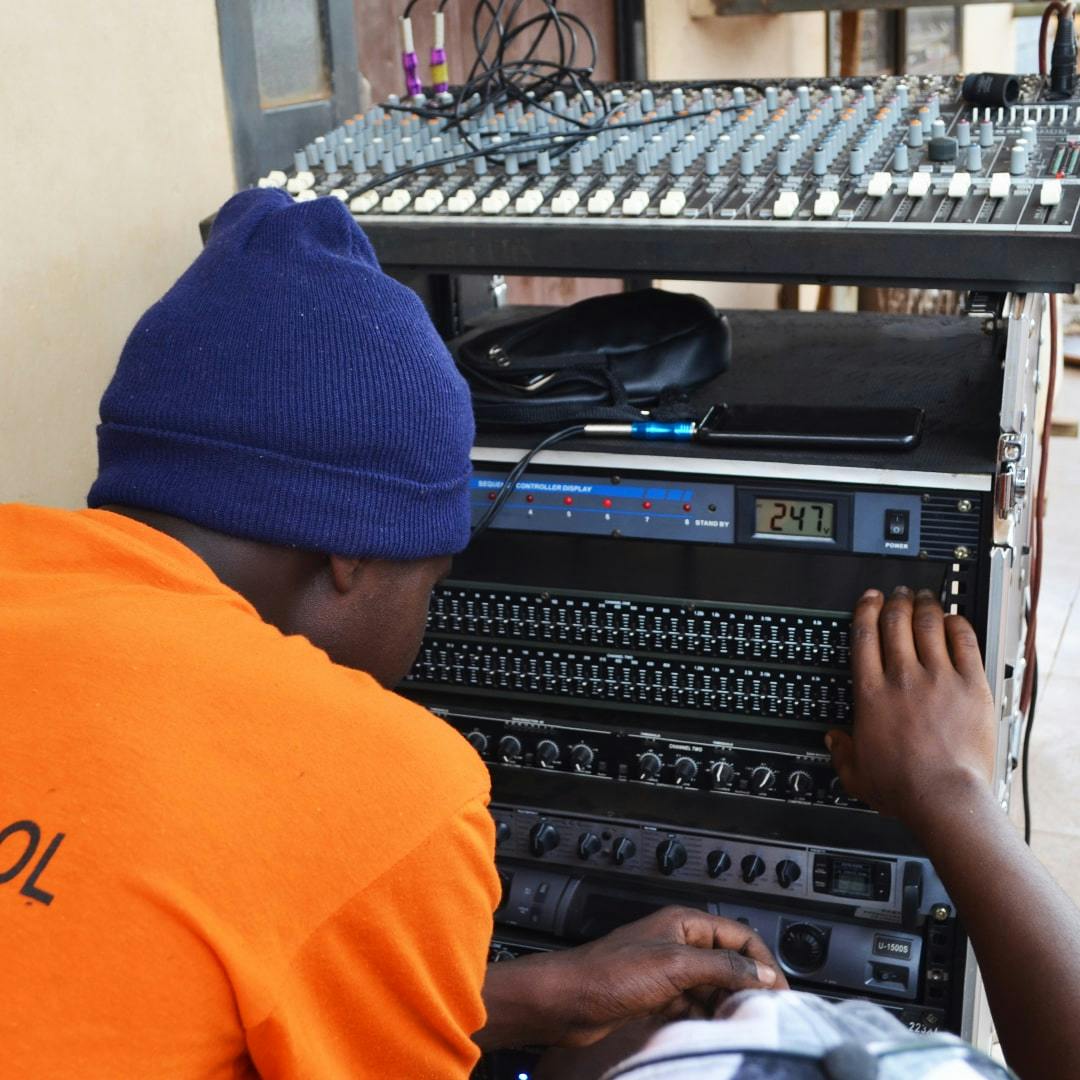

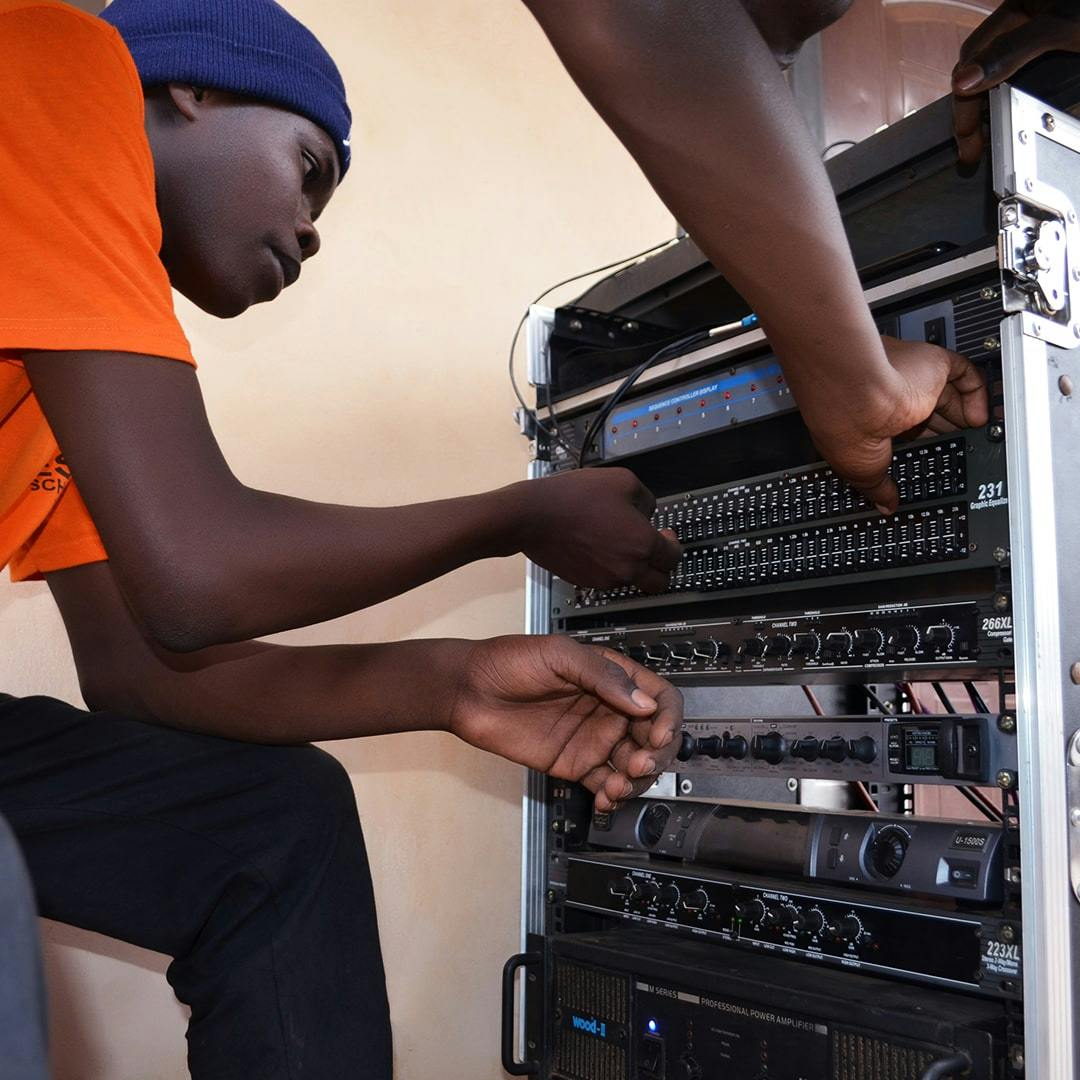
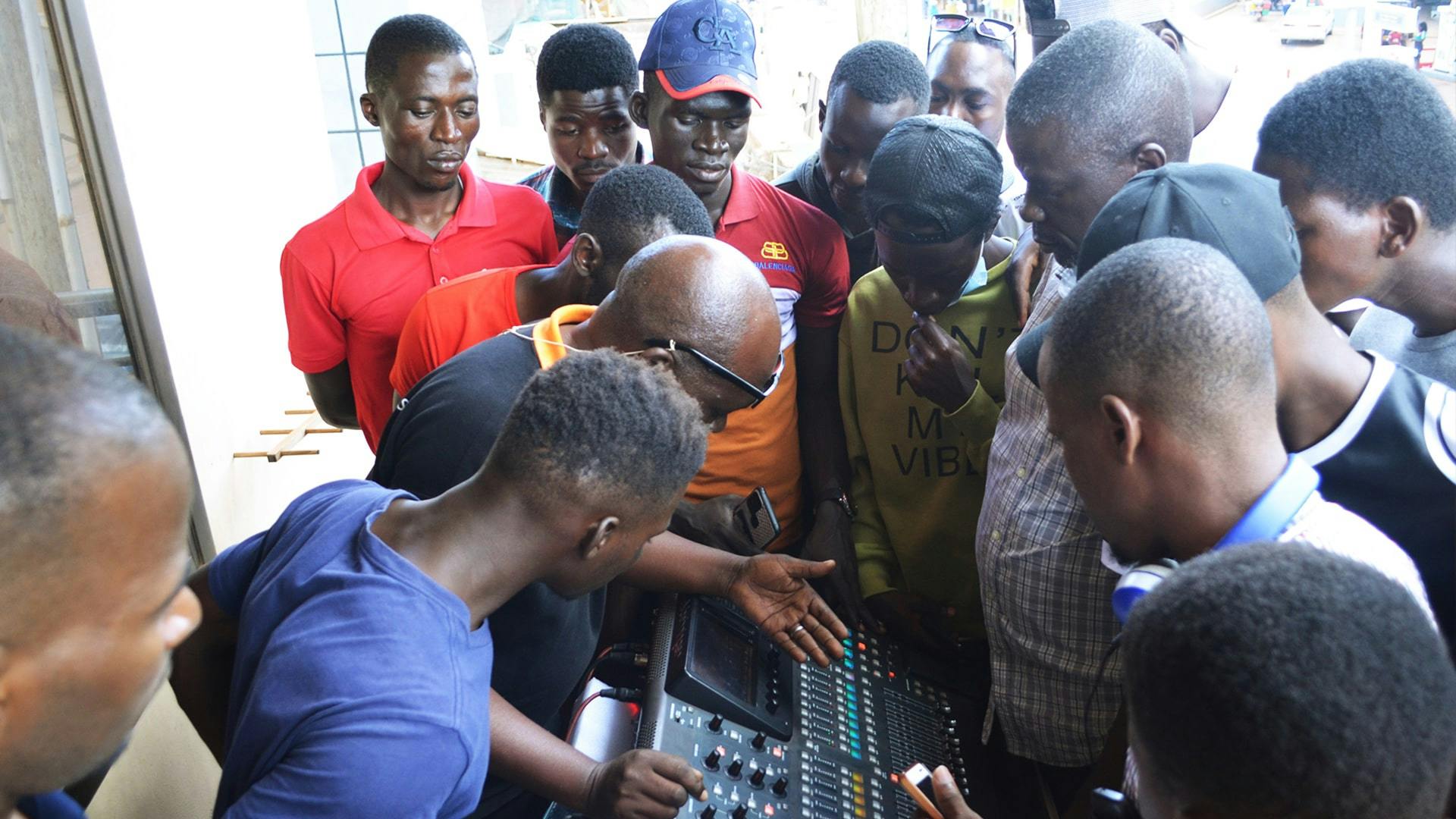
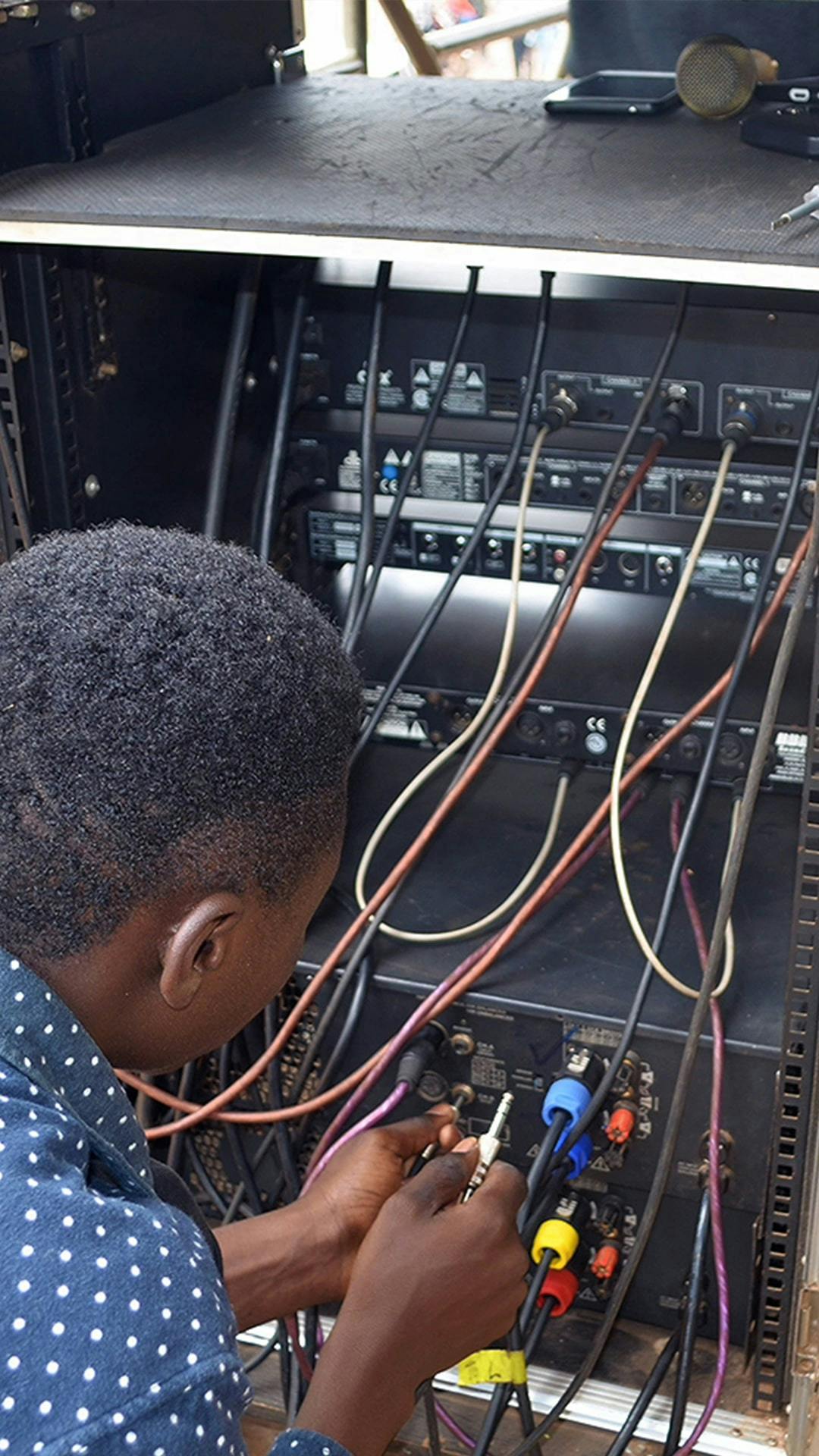
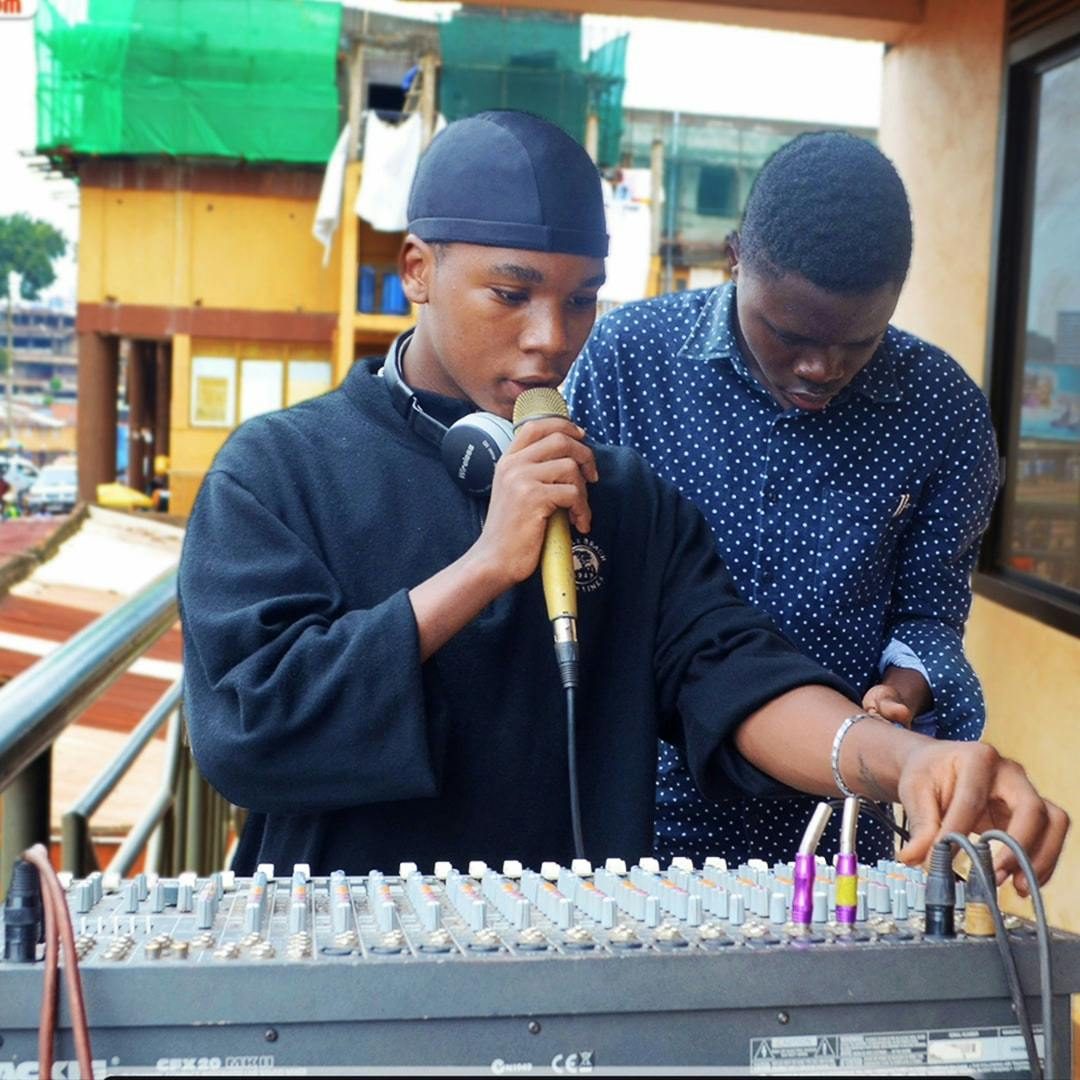
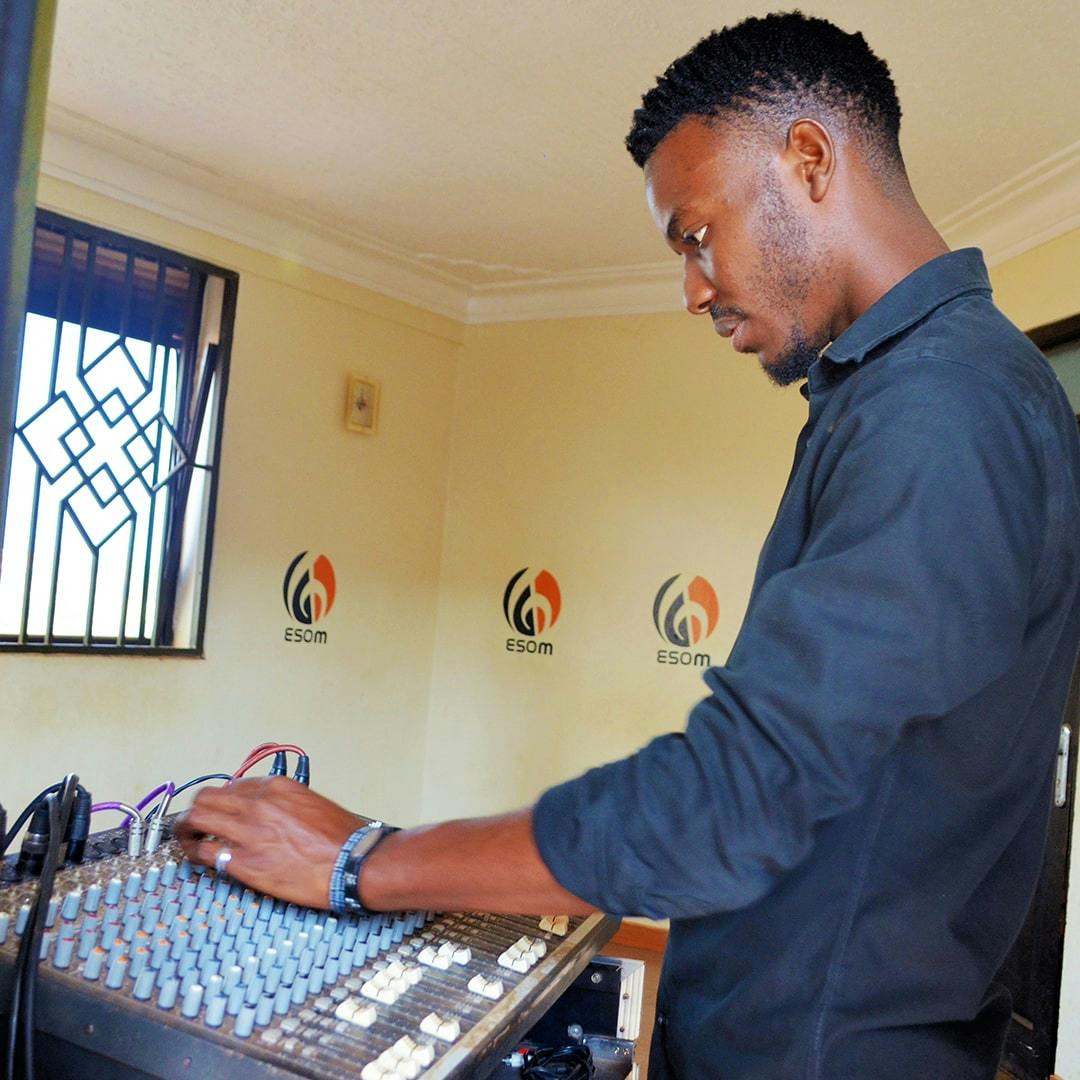
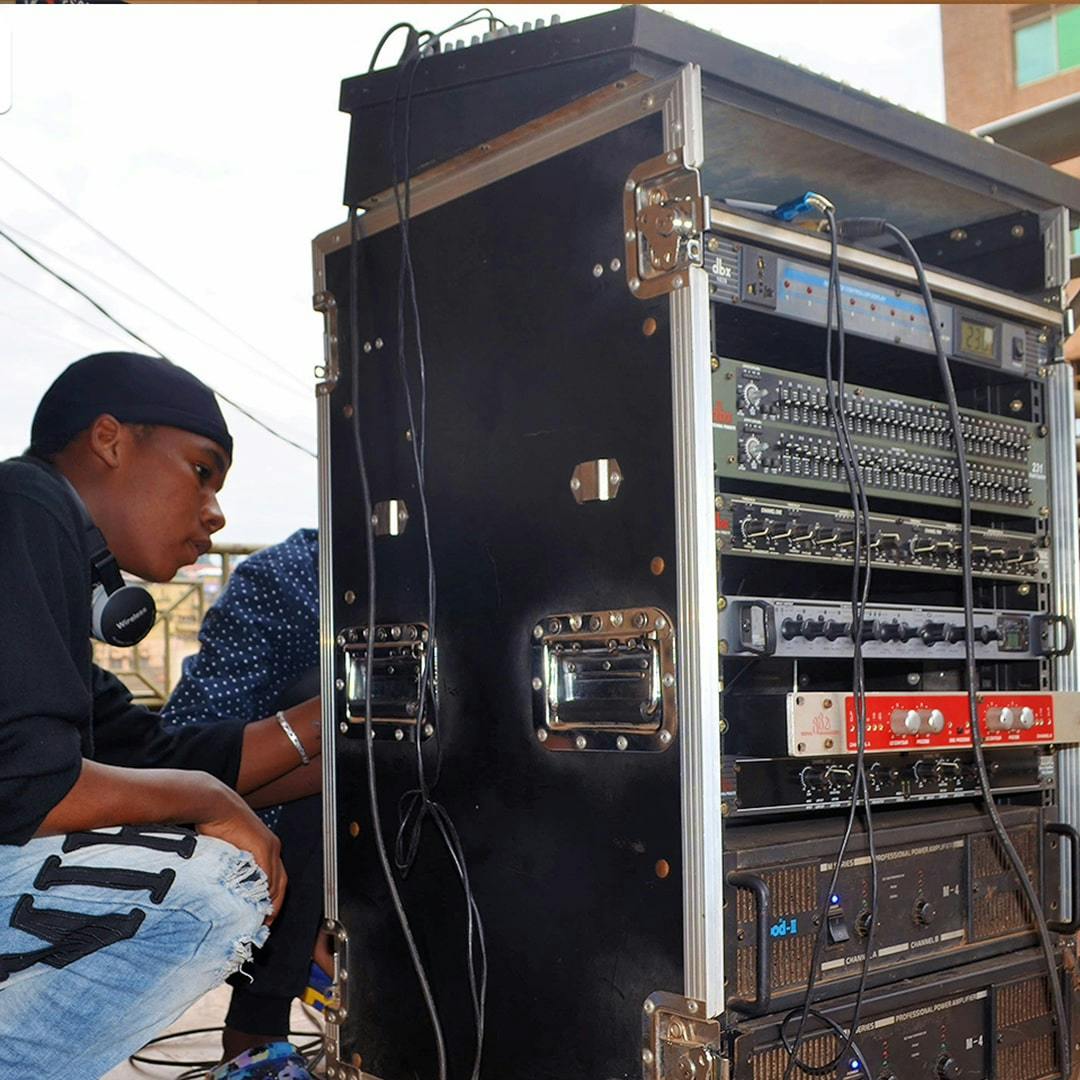
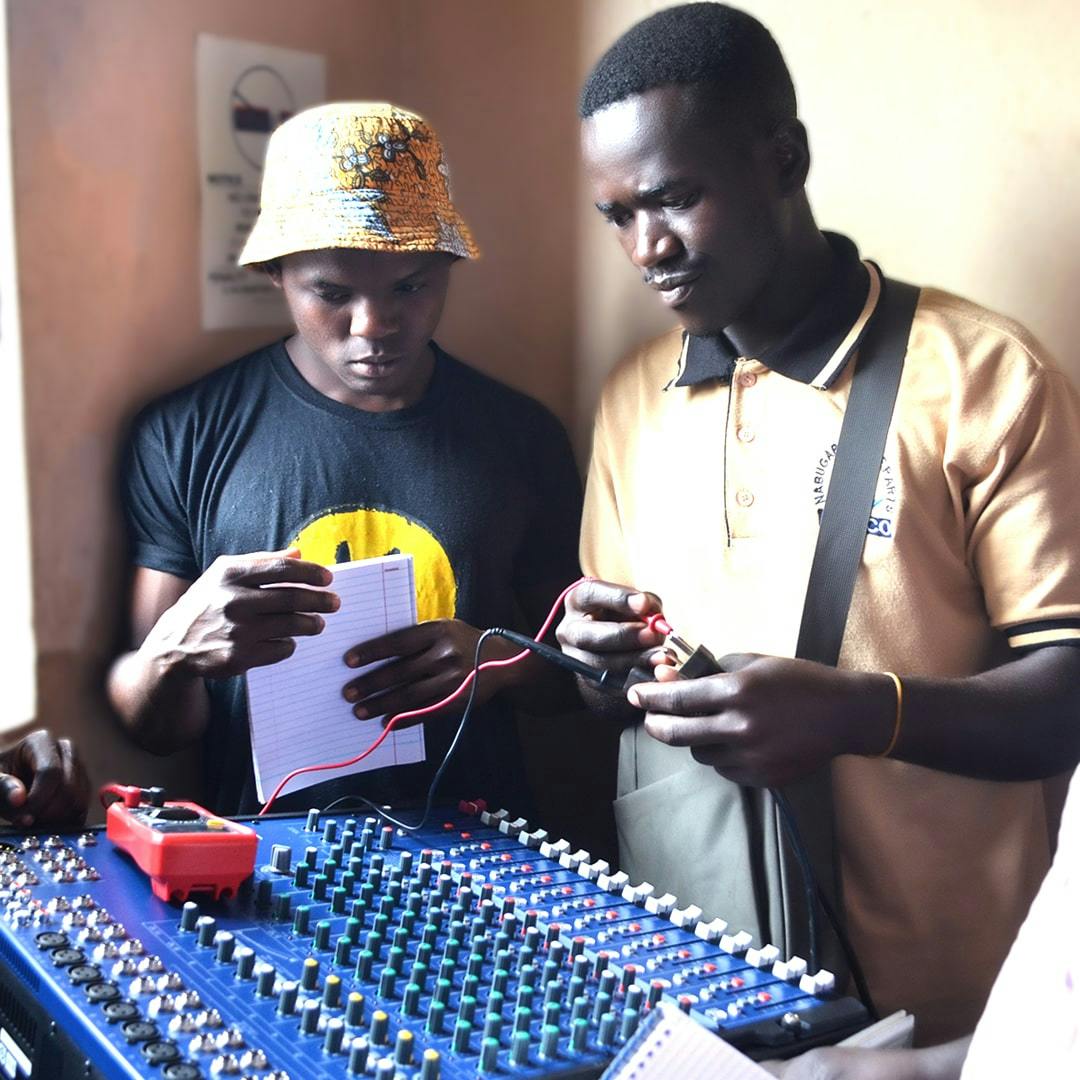





Resonance of Success
From studio revelations to live sound mastery, these testimonials paint a vivid picture of a journey filled with passion, skill development, and the empowerment to shape the future of sound. Discover what our students have to say about the extraordinary impact of the Sound Engineering Course at ESOM
"ESOM's Sound Engineering Course was a revelation for me. The hands-on experience in the studio, the guidance from experienced instructors, and the collaborative projects truly set this program apart. It's not just a course; it's a transformative journey into the world of audio craftsmanship"
"Enrolling in ESOM's Sound Engineering Course was a turning point in my career. The course's flexibility allowed me to explore my specific interests within sound engineering, and the industry exposure provided a bridge to the professional world. Grateful for the experience!"
"As a Foley artist, I was seeking a course that would refine my skills and introduce me to new techniques. ESOM's program did just that. The instructors' expertise, the studio facilities, and the focus on practical applications made this course invaluable for anyone looking to master the art of sound."
Meet the Instructors

Badru Lugoloobi
Sound Engineering Instructor
Harmony in Expertise
Our instructors aren't just educators; they are maestros of sound, seasoned professionals who have sculpted the audio landscapes of the industry. Immerse yourself in a world where expertise meets passion, and embark on your sonic journey under the guidance of our accomplished and dedicated sound engineering instructors.

Samuel Tusiime
Sound Engineering Instructor
Decoding Sonic Mastery
From mastering the art of audio to navigating the technical intricacies of sound design, we've got your burning questions covered. Get ready to decode the symphony of education as we demystify the journey into the heart of sound engineering excellence